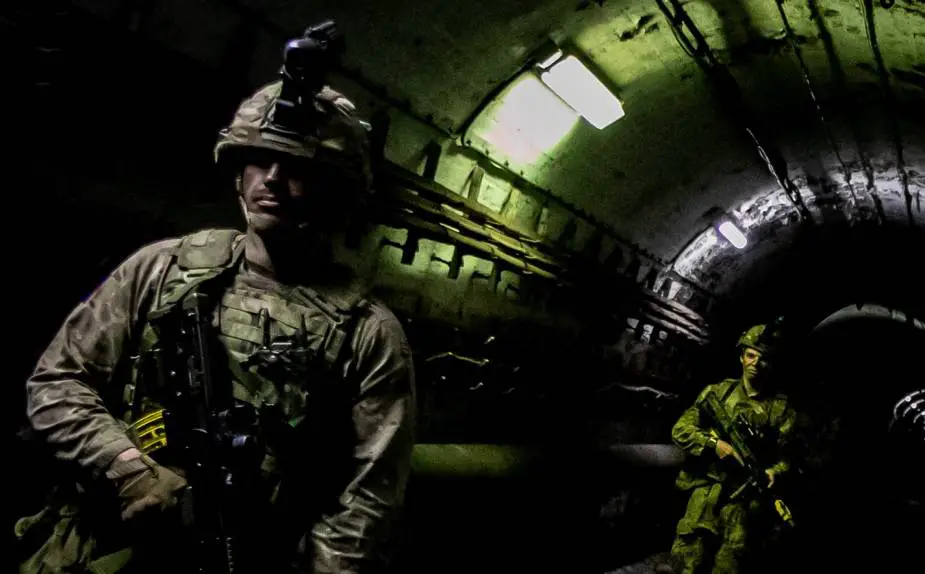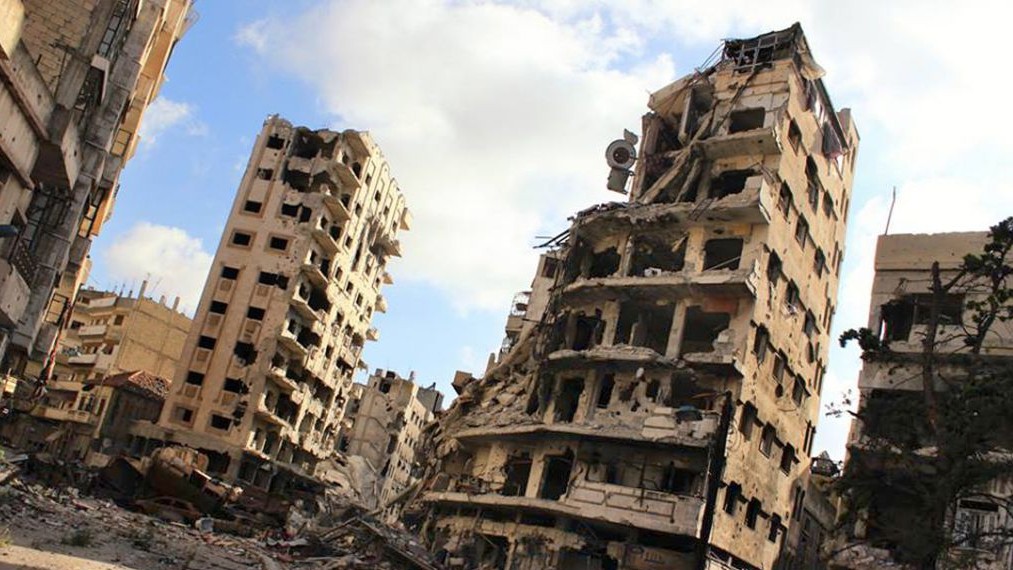As part of Future Soldier, innovation will be given greater priority, especially in areas such as digitisation, robotics, AI and electronic warfare, all key for successful urban ops. As part of the Future Land Combat System, the Army has set a vision to be “honed for urban” and, as part of the Land Urban Roadmap, has been working with the Defence Science and Technology Laboratory (Dstl) to predict future technologies and ways of operating, helping to ensure the right doctrine and equipment is in place for the challenges of urban operations.
Part of this work is a programme known as the Contested Urban Environment (CUE) Strategic Challenge. Part of The Technical Co-operation Partnership, the multi-year CUE programme works with Five-Eyes allies and partners, as well as industry and academia, to ensure collaborative working and to identify where cutting-edge tech can benefit our forces operating in urban environments.
Technologies developed through CUE include highly distributed sensors that use AI to detect adversaries such as personnel, vehicles, and drones; technologies to enhance the situational awareness of soldiers in complex terrain such as high-rise buildings and tunnels; and tools for exploiting the many data sources available from the city itself.
Stuart Lyle leads all support to Army’s Agile Warrior programme at Dstl and is their urban operations lead. He said: “It’s critical that the Army is the principal focus because the Army is the principal service for conducting any future urban operation. The Future Land Challenges Symposium is important not only to set the tone for upcoming research, but it also highlights some of the areas which need greater understanding. The fact that an entire day has been dedicated to urban shows how seriously this subject is being taken by the Army’s leadership.
As part of Agile Warrior, the symposium looks out to 2040, but also considers nearer-term issues as well. It is not all robots and artificial intelligence. The challenges of urban operations have been growing in prominence in the UK and with partners over the last few years. We recognise that we are more likely to conduct operations in an urban environment, across the full spectrum of conflict from peacekeeping to warfighting.”
Brigadier Ollie Kingsbury is Head of Warfare Development at the Land Warfare Centre, and co-chairs the Land Domain Urban Operations Steering Group. He said: "We are sharpening the Army for success in urban environments. We will have to operate in built-up areas, and it plays to our strengths: the resilience of our junior leaders and our culture of initiative and mission command. Following a roadmap for improvement, we are now prioritising urban expertise in our current and future plans, including research and experimentation. We are updating and refining the way we work now - tactics, training, equipment, structures, and infrastructure - as well as building urban capabilities into our modernisation programmes. We're aiming to move beyond being good at urban operations if we get drawn in, to really embracing the challenges and looking for ways to exploit our expertise."



 .
.



